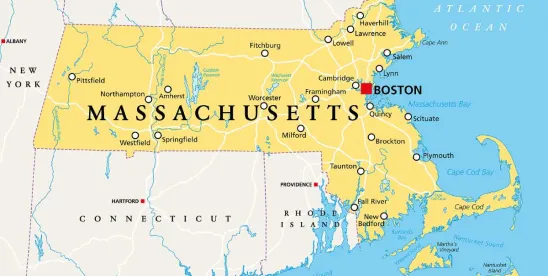On June 4, 2024, the Department of Public Utilities (“DPU”) issued the Phase II Order in the two phased docket: D.P.U. 20-145-Phase II Revisions to the Revised Solar Massachusetts Renewable Target (“SMART”) Provision (the “Phase II Order”). The Department had previously issued its Phase I Order on December 30, 2021, but left several items and policies, including revisions to the Distribution Companies’ SMART Tariffs (the “Tariffs” or, as to each Distribution Company, the “Tariff”), to the Phase II Order.
TECHNICAL REVISIONS TO THE SMART TARIFF:
While the Phase I Order covered several revisions to the Tariffs, the Phase II Order approved several technical changes to defined terms in the Tariffs to better align with the Department of Energy’s (“DOER”) SMART Regulations and to comply with the 2022 Clean Energy Act. Specifically, the Phase II Order directed the Distribution Companies to incorporate, the regulatory definitions for “Community Shared Solar STGU”, “Low-Income Community Shared Solar STGU”, and “Low-Income Property STGU” into each Distribution Companies’ Tariff and required Eversource to update its Tariff to permit the transfer of Alternative On Bill Credits (“AOBC”) between NSTAR Electric’s East and West service territories.
Definitional Revisions to Tariffs
The SMART Regulations, 225 CMR 20.02 includes definitions of the terms “Community Shared Solar STGU”, “Low-Income Community Shared Solar STGU”, and “Low-Income Property STGU”. However, the definitions were not included in the Tariffs. In the interest of maintaining administrative consistency, the DPU required that the Distribution Companies incorporate the following definitions into their respective Tariffs:
- Community Shared Solar Tariff Generation Unit. A Solar Tariff Generation Unit that provides electricity or bill credits to three or more Customers of Record. No more than two participants may receive bill credits in excess of those produced annually by 25 kW of nameplate AC capacity, and the combined share of said participants’ capacity shall not exceed 50% of the total capacity of the Generation Unit, except in the case of Generation Units smaller than 100 kW AC.
- Low Income Community Shared Solar Tariff Generation Unit. A Community Shared Solar Tariff Generation Unit with at least 50% of its energy output allocated to Low Income Customers in the form of electricity or bill credits.
- Low Income Property Solar Tariff Generation Unit. A Solar Tariff Generation Unit with a rated capacity greater than 25 kW that provides all of its generation output in the form of electricity or bill credits to low or moderate income housing, as defined under M.G.L. c. 40B.
Eversource AOBC transfers
As a result of a 2017 merger of Western Massachusetts Electric Company into NSTAR Electric, Eversource’s MA East and MA West service territories have maintained separate administrative matters, including with respect to the transfer of AOBCs. In the initial promulgation of SMART, AOBCs could not be transferred between Eversource’s East and West service territories. Since the initial release of SMART, Eversource has undergone updates to its administrative processes and infrastructure resulting in there no longer being a need to prohibit the transfer of AOBCs across Eversource’s East and West Service Territories. Recognizing these updates, the DPU directed Eversource to revise the next version of its Tariff to remove the language prohibiting the transfer of AOBCs across Eversource East and Eversource West.
THE POLLINATOR ADDER:
A regulatory item that remained in limbo while the solar industry awaited the Phase II Order was a final determination on the Pollinator Adder. In the 2022 Clean Energy Act, the Legislature authorized a pollinator incentive to be included in the SMART Program as a rebate for costs associated with certification to comply with pollinator friendly requirements. The 2022 Clean Energy Act also directed DOER to incorporate this rebate structure into the SMART regulations. In its Phase I Order, the DPU denied cost recovery related to the Pollinator Adder. The rejection of the Pollinator Adder interjected uncertainty into the Commonwealth’s solar industry, especially for Standalone Solar Generating Units (“STGU”) that had Preliminary Statements of Qualifications approving the STGU’s election of the Pollinator Adder. Following correspondence from DOER stating that DOER had further reviewed the Legislature’s language pertaining to the Pollinator Adder in the 2022 Clean Energy Act, and DOER’s view that the current language of the Pollinator Adder complied with the legislation’s language, the DPU reversed its Phase I Order and directed the Distribution Companies to provide for rebate payments to solar developments that certify as pollinator friendly.
To qualify for the Pollinator Adder an STGU must maintain a silver certification from the UMass Clean Energy Extension’s Pollinator Friendly Certification Program or an equivalent program. If the STGU qualifies it would be eligible for a $0.0025/kWh adder to its Base Compensation Rate, which is calculated on a per kWh basis.
The Phase II Order also included a new “cash-out” provision for AOBCs, revisions to the AOBC Payment/Credit Form, substantive revisions to the metering requirements for Energy Storage Systems, and Low-Income customer access to Community Shared Solar Programs, including Municipal Aggregation and the Distribution Companies alternative Low-Income Community Shared Solar programs.





 />i
/>i
